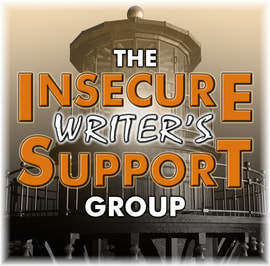Remember your Place
 Writing a book is a complicated process. Like a good stew, there are a lot of ingredients that go into the mix. We often talk about character, which is arguably the most important element of story. Without good characters, you have cardboard cutouts going through motions. In other words, not anything worth reading. We talk a lot about plot too. It is, which is, in many ways, the easiest of the elements of a story to define. There's no doubt that having something for those great characters to want and/or to overcome makes for a worthwhile read. A third essential element, place, is often hidden in the background. Like the onions in the stew, it is seldom talked about, but vitally important if you want to tell a tasty story. The sense of place is, I believe, one of the most underrated and often underutilized parts of story writing.
Writing a book is a complicated process. Like a good stew, there are a lot of ingredients that go into the mix. We often talk about character, which is arguably the most important element of story. Without good characters, you have cardboard cutouts going through motions. In other words, not anything worth reading. We talk a lot about plot too. It is, which is, in many ways, the easiest of the elements of a story to define. There's no doubt that having something for those great characters to want and/or to overcome makes for a worthwhile read. A third essential element, place, is often hidden in the background. Like the onions in the stew, it is seldom talked about, but vitally important if you want to tell a tasty story. The sense of place is, I believe, one of the most underrated and often underutilized parts of story writing.Place itself can be a character—think of Jack London’s To Build a Fire, where the protagonist isn’t a someone but a something. The story is rooted in the artic and surviving the elements is what moves the character forward. The stakes are extraordinarily high: overcome the elements or die. Change the setting to New York City, or to the rainforest in New Guinea, and you lose the storyline. Not that you couldn’t write a story about survival in the city or in a jungle, but it would be a far different story from the one London wrote.
Of course, place isn’t always as obvious in how it informs a story as in To Build a Fire. I think of the small Maine town that Olive Kitteridge inhabits, or the down-on-its-heels mill town that is Empire Falls. The characters in these stories are deeply embedded with a sense a place, even if the place is in the background and the influence it has not blatantly obvious. Place is still essential, and as with London's story, remove or change the place and you irrevocably alter the storyline.
To ignore the where of your story is to leave a large chunk of it on the cutting room floor. There is tremendous potential in space and time. Used well, it becomes more than a backdrop for story, it becomes an active ingredient, an integral part of a character’s makeup. Sometimes, it even becomes a character itself.
When writing, I think long and hard about my character's challenges and how they will meet those challenges. And I also give a lot of consideration to where they live in time and space.
Does setting inform your WIP? How? If not, can you enrich your story by adding this important ingredient?
Published on September 04, 2019 04:00
No comments have been added yet.



